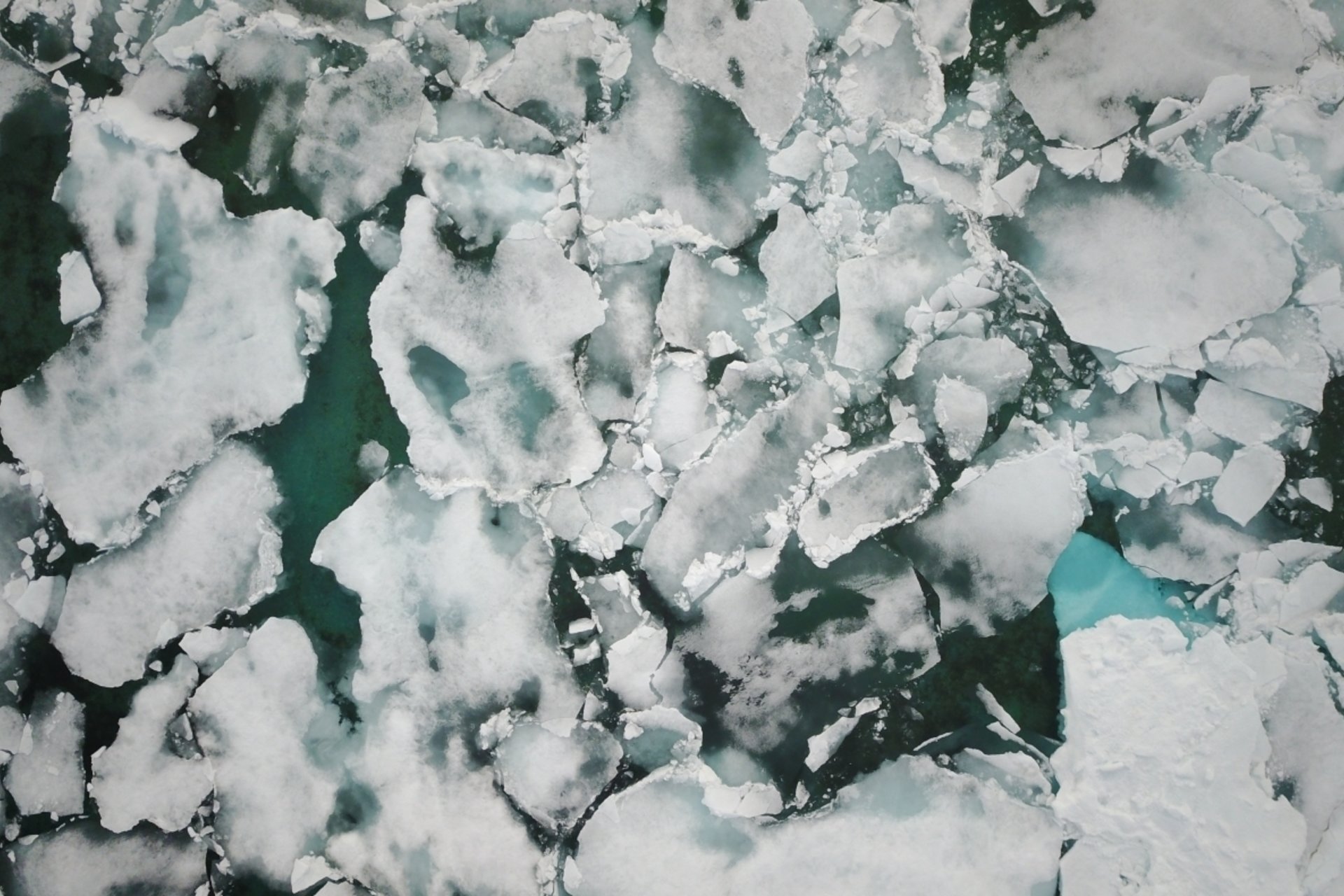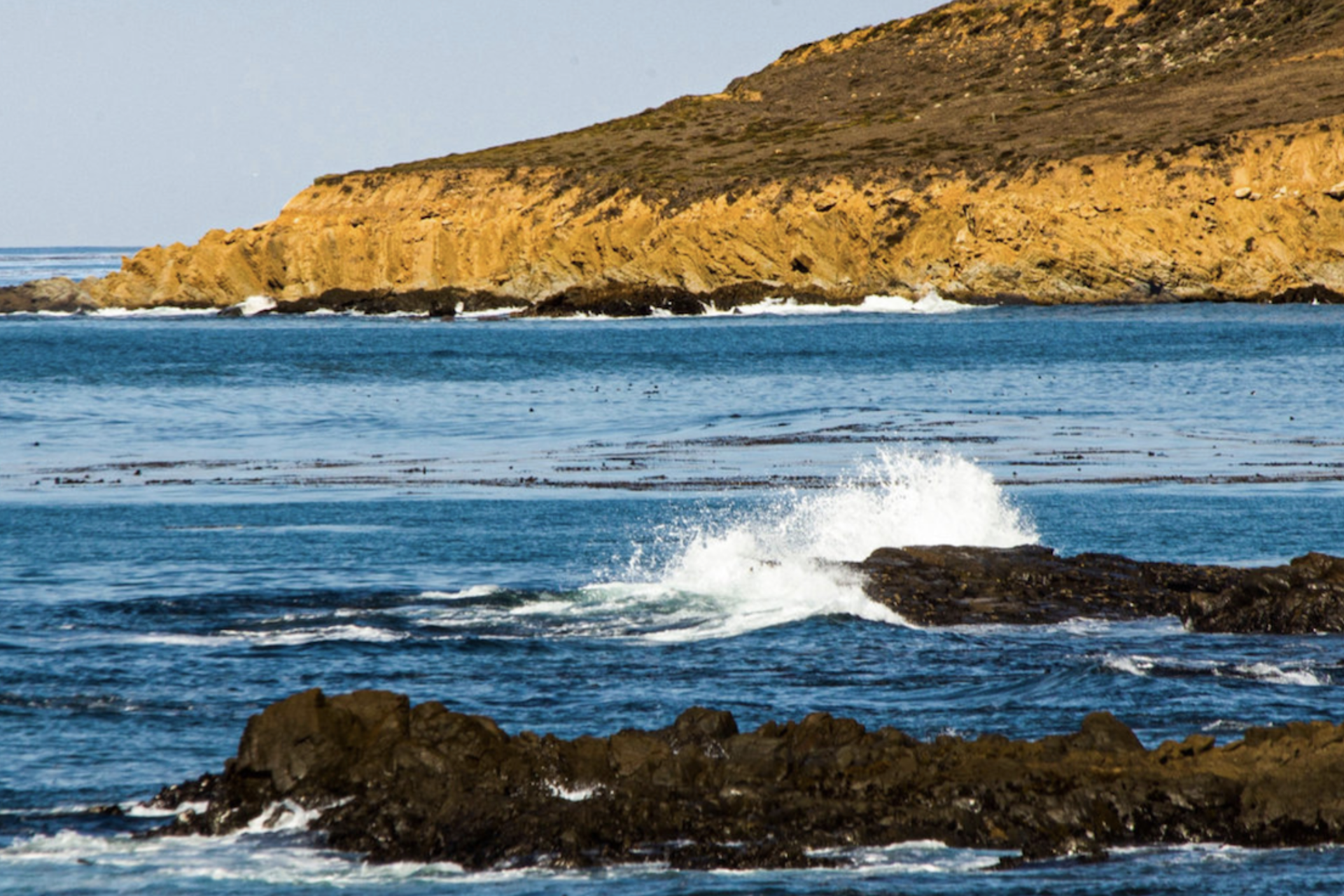Hennessey Part 4: Test Bite

Hennessey, crept in towards shallow water. It was all sandy here – no more rocks and no more seals. Instead there was a gentle swell coming from the south, a swell that eventually hunched up into waves that curled up the gradual slope of the beach. She was assailed with different smells, sweet chemical oils that were neither seal nor fish, but with an underlayer that was clearly mammal. And she could see what were obviously animals near the shore, rolling, splashing and standing in the waves. She kept her distance from these. Prey or not-prey? Her memory held little answer because she had always avoided these shallow, sandy, crashing shores.
Turning, she paralleled the beach for a short distance, then
reversed and idled back. It was all the same – dominated by these creatures that might be prey and that looked very clumsy, but were in water too shallow for her great girth. Attracted by the mammal scent. Thwarted by the shallows. Hennessey continued her patient patrol along the beach and back again.
Then something caught her vision. It floated nearby at the surface. Almost oval like a sea turtle. She couldn't tell if it had legs like a turtle and was paddling, or fins like a sunfish. It seemed to move of its own power.
She shadowed the object with ancient caution and a fencer’s grace. Lifting her right fin, she swung minutely to her left, passing it, sensing it. A very dilute mammalian scent lit up her hunter’s brain. She pirouetted to the right, spinning back around for another questing pass. The patience of motherhood tempered her approach—looking for certainty before committing to action.
Another pass. With every lap the great fish tightened her loop, spiraling in at last, close enough to touch it, to brush it and power away. She went back to looping again, evaluating, but still not certain. She had learned nothing, and so she spiraled back in. She made another pass.
None of her senses helped her classify this object. Her brain organized everything into two fundamental categories: prey and not-prey. Attack or ignore. The oddity she circled challenged that simplicity. Neither fish, nor seal, nor whale, nor turtle. And when scent and electricity and touch failed her, she needed the most important sense of all: taste.
A bank of powerful taste sensors lined her mouth, constantly sampling every chemical in the ocean around her. A small bite, or a small rip, or a small gash in the body of a potential prey was enough to fill the water with an encyclopedia of tastes that Hennessey could read in an instant.
Right now, she did not know what this floating object was. It was still here. She was still hungry. To know it, she had to taste it.
Deciding, she tightened the circle she was swimming and returned to the object, raising up toward the surface from below. She turned her head daintily in order to bite carefully, nimbly, and to finally classify this object. Prey or not prey?
She extended her jaws so that the teeth flexed out toward the mystery. Not to bite with full commitment, not even hard: she saw no need for anything but a test bite. Her jaws could macerate turtle shells and splinter the bones of the largest whales but for this she needed the tiniest puncture.
As she tensed for the bite, her teeth flexed out toward the floating object. She steadied her huge head with an exactly timed pulse of her tail, and bit so carefully that only a few front teeth engaged the object.
It shattered in a fracture of tasteless styrofoam and brittle plastic. It broke apart instantly. There was nothing edible, nothing that was even alive. Just a floating empty board, blown off the beach, its owner nowhere near.
Hennessey wheeled away, carelessly leaving the broken board in a tumble of ripped plastic, creating a deep thumping fountain of water as she dove quickly. The test bite had done its job – the prey was worthless and she hadn’t risked swallowing it. That was the good news. The bad news was that her pups were still hungry.
---
Start at the beginning of Hennessey's journey here.
Explore More
-
The inaugural awards will enable research teams to pursue interdisciplinary ocean and coastal projects that address impacts of environmental change in the Bay Area and beyond.
-
A new research partnership will combine Indigenous and scientific knowledge to monitor marine life in a sacred tribal region that may be a bellwether of how native species will fare in the face of climate change.



